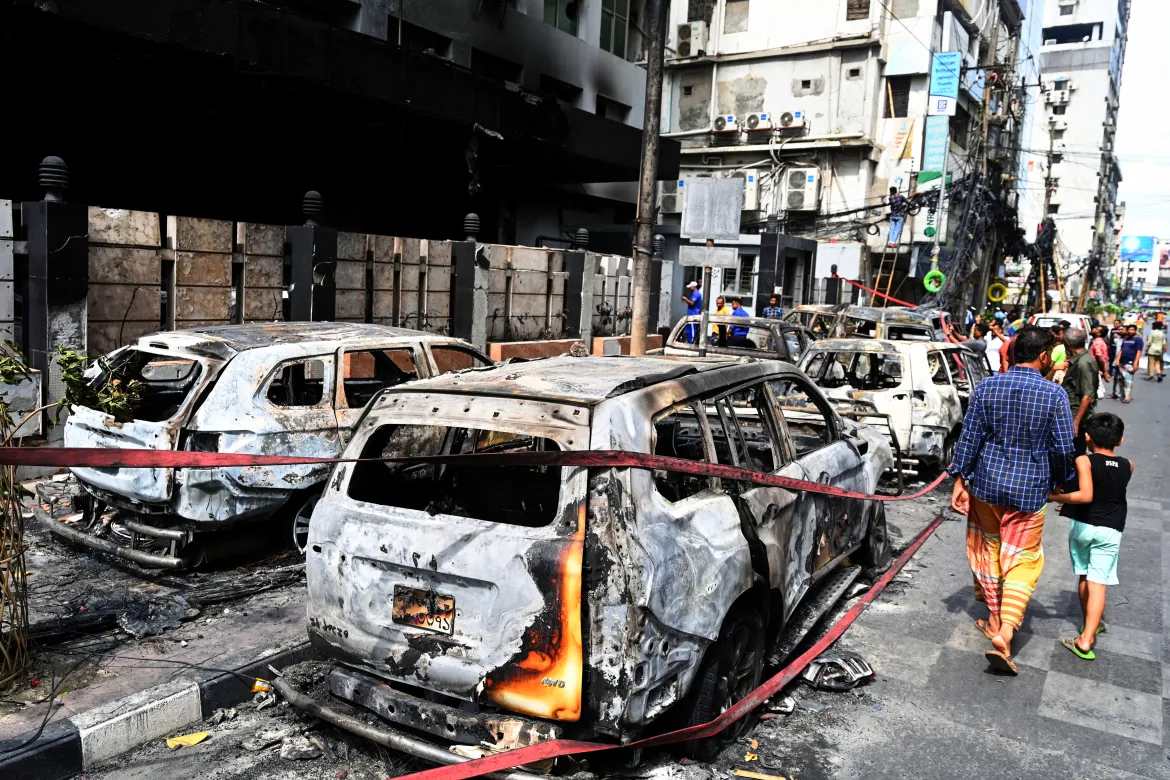The recent protests in Bangladesh regarding reform of quota in government jobs is not the first such movement. A major movement for quota reforms was waged by general students in 2018, following which all quotas for first and second tier jobs were abolished by the government of Prime Minister Sheikh Hasina. However, seven children of freedom fighters filed a writ petition in the High Court (HC) in 2021 challenging the 2018 order. While the government did oppose the petition, the HC last month overturned the 2018-decision, triggering the current protests.
The government allowed peaceful protests by the students and at the same time appealed for annulment of the HC verdict. The government also called upon the protesting students to wait till the SC delivered its verdict, initially scheduled for August 7, 2024. The rationale being the government could not act on a subjudice matter. Essentially the government and the students were seeking the same outcome on the matter, with the students choosing a path of peaceful protests, and government pursuing the legal means.
Then, how did this peaceful general students’ movement turn violent? Answering this question needs a bit of a background. Objection to quotas, especially the quotas for freedom fighters, was first raised by Islami Chatro Shibir (the student wing of Jamaat-E-Islami, an Islamist organization convicted of war crimes and crimes against humanity) in 2013. However, due to the extremist notoriety of the group, the issue did not get much traction.
Thus, while both the 2018 and the 2024 movements were waged by general students, Shibir, its parent organization Jamaat, and their ally the Bangladesh Nationalist Party (BNP) were very much interested in the outcome of the movements. The ulterior motive of the cohort to use the pretext of the student protest to unleash violence was evident from the public statements of leaders of BNP (Jamuna TV, July 17, 2024) and its student wing, Bangladesh Jatiyobadi Chatro Dal (Prothom Alo, 16 July 2024). They resorted to misinformation and disinformation using social media to drive a wedge between the government and the peaceful student protesters. For instance, an innocuous comment from the Prime Minister on collaborators of the 1971 Liberation War was misrepresented on social media to instigate and provoke the protesting students against the Premier.
Consequently, incendiary rhetoric started coming out of the protests, to which Bangladesh Students League (BSL), the students group affiliated with the ruling party, which till then was supportive of the quota reforms movement, started reacting to those comments that were not related to the movement. It is difficult to say which side threw the first stone, but soon enough, clashes erupted. Despite repeated calls for dialogue from the government, the protestors’ peaceful sit-ins transformed into coercive programmes such as road blockades. Additionally, clashes started to erupt between the protestors and BSL in various university campuses.
Soon clashes became violent with non-student political actors (BNP, Jamaat and their student wings) infiltrated and completely took over the movement. Consequently, the Prime Minister addressed the nation urging restraint and assuring appropriate judicial inquiry of violent incidents. She also requested the students to be patient till the SC verdict and hoped that they would get justice from Court. Meanwhile, at the request of the government, the SC brought forward the appeal hearing date to July 21, 2024.
Nonetheless, from July 18, 2024, the level of violence blew out of proportion, and it became evident that the third-party political actors were behind the violence under the cover of the students’ movement. Public and private properties including popular public installations, such as the metro rail, elevated expressway, government humanitarian establishments like disaster management centre, hospitals, and key point installations like the national broadcaster BTV and national data center were systematically attacked, vandalized, and torched. A prison was attacked in Narsingdi and set free convicted religious militants. The scale of destruction is unprecedented.
The protesting students issued multiple condemnations, distanced themselves from the violent acts, and warned the third party not to use their movement for their ulterior political motive. To save public lives and properties, the government was compelled to impose curfew and deploy the armed forces in aid of the civil authorities.
On July 21, 2024, the SC heard the appeal and announced its verdict – overturning the HC judgment. It also issued directives to the government to reform quota. The government has subsequently issued necessary notification according to SC guidelines. The protesting students have welcomed the decision.
In the meantime, many lives have been lost in the restive situation in Bangladesh last week (including innocent students, law enforcers, members of the ruling party, attackers, innocent bystanders etc.). The government has so far shown its sincerity in investigating the incidents of death by forming a judicial commission headed by a serving judge of the High Court. The Prime Minister has also assured, in her address to the nation, that the law will be applied strictly against those who are responsible for the incidents of death, notwithstanding their politics or positions.
This is undoubtedly a difficult time for Bangladesh. But the country is resilient. With normalcy returning slowly, it is hoped that the country can move past this tragic chapter quickly by ensuring accountability and fostering collective healing.
The author, Colin Stevens, is the Publisher / Editor in Chief of EU Reporter.


















































